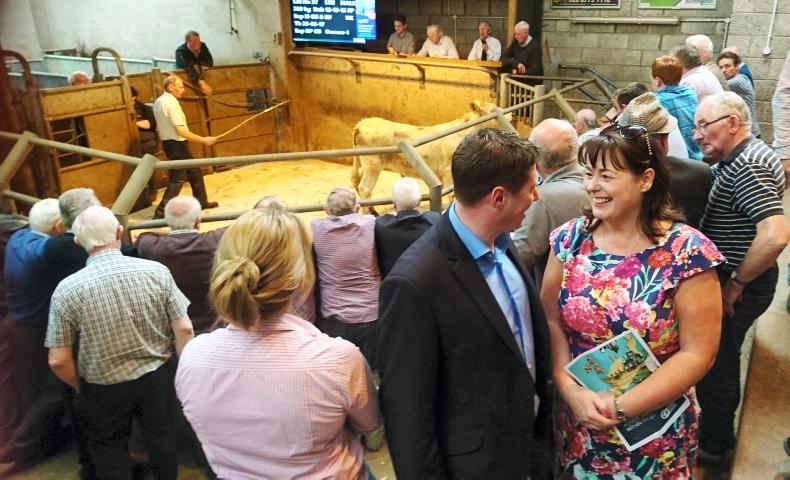Whatever about the resumption of local government at Stormont after the general election on 8 June, it is difficult to imagine how the two main political parties in Northern Ireland can come to an agreed position around Brexit.
At a launch of their campaign for NI to have special status within the EU after the UK leaves, Sinn Féin politicians were openly critical of the position taken by some unionist politicians, particularly the DUP. While the largest unionist party took a pro-Brexit stance, and remains committed to the principle, Sinn Féin wants NI to remain within the EU, the customs union, the single market and the Common Agricultural Policy (CAP). The two positions are poles apart.
However, Sinn Féin criticism also extends to NI farming leaders. Recent documents and statements from the Ulster Farmers’ Union (UFU) that have used terminology such as “making a success of Brexit” or describing it as “a once in-a-lifetime opportunity” have touched a few raw nerves.
“Some farm organisations are asleep at the wheel. They have not been addressing the issues of concern in the way they should. This argument about making a success of Brexit is negligent. The vast majority of farmers in the north will be worse off post Brexit,” maintained Sinn Féin MEP Matt Carthy.
He maintains that other farm organisations in the Republic of Ireland, such as the Irish Farmers Association (IFA) have been “more honest” with their members about what lies ahead.
Across all sections of society, Carthy believes that farmers in NI will be hardest hit by Brexit, followed by farmers in the Republic of Ireland. “It is a disaster for the island,” he said.
The main basis for his argument is that farmers in NI will lose EU direct payments, currently worth an average of over £10,000 per farm in NI, to be replaced by something which will deliver one third of current payments, at best. He doesn’t hold out any hope that farmers here will be able to retain their 9% share of UK CAP money (on the basis of the Barnett formula, used to allocate NI’s block grant, we would receive 3%).
He also believes that Britain will pursue various trade deals post Brexit, leaving the door open for imports of cheap food from around the world.
On trade across the Irish border, Carthy warns that there could be tariffs (if the UK and EU fail to do a free trade deal), origin checks on goods, physical border checks and more paperwork for companies. “Brexit will signal the end of the small family farm as we know it,” he warns.
The Sinn Féin solution to the problem of Brexit is for NI to remain part of the EU, and then negotiate with other EU partners a “free and fair trade agreement” with Britain, to include transitional arrangements until a deal is finally agreed. Carthy points out that the majority of people here voted to remain.
He also believes that the majority of farmers wanted to stay part of the EU.
But what about the significant number of farmers who wanted to leave? Carthy maintains that some voted out for ideological reasons while some were misguided. He accepts that some were also fed up with EU bureaucracy, and argues that this is something Sinn Féin will continue to try to change from within.
Market
Perhaps Sinn Féin’s biggest challenge will be to convince the wider agri-food industry that being within the EU is better than being within the UK.
Britain is, by far, the largest market outlet for NI food and drink, accounting for over 44% of all sales.
In sectors such as beef, around two-thirds of product is sold in Britain, which continues to be one of the best paying markets in the world.
Surely then relying on an EU trade deal to get product into Britain would be a huge negative for NI?
“Part of the Irish Government negotiation strategy must be that we have full access to the British market on an island of Ireland basis. No one is saying it is going to be easy. But we are too small an island to be competing against each other. We need to work together. We need to have an all-Ireland system,” responded Carthy.






 This is a subscriber-only article
This is a subscriber-only article









SHARING OPTIONS: